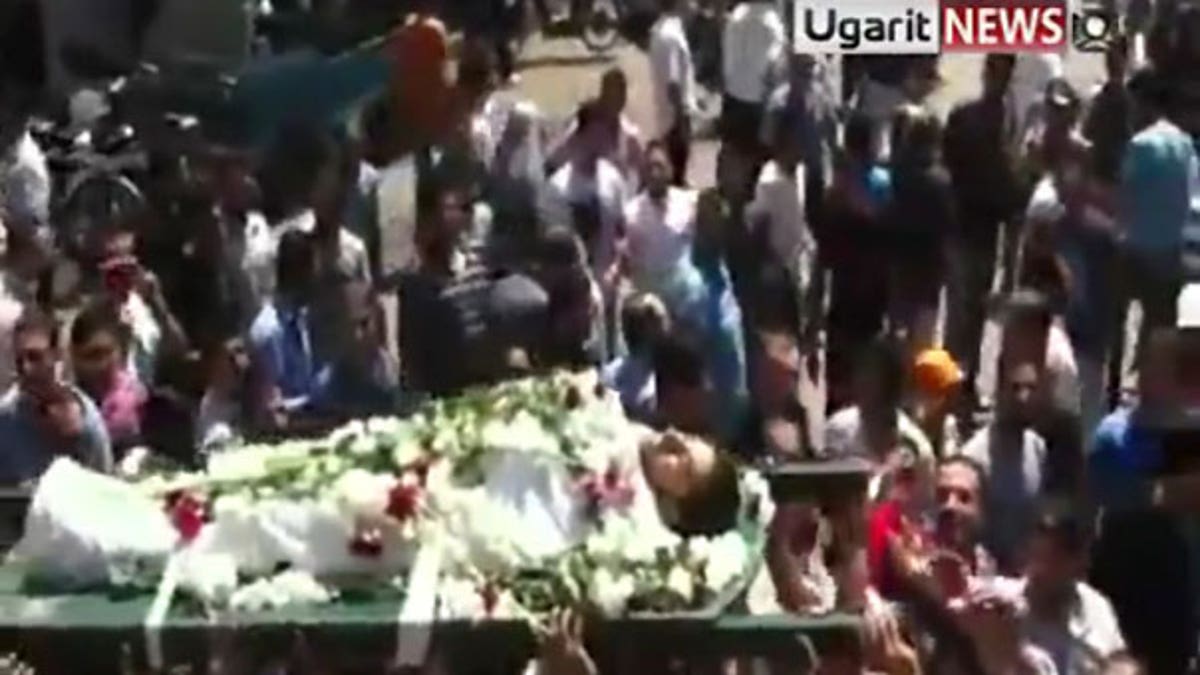
Aug. 2: In this image made from amateur video released by Ugarit News and accessed via The Associated Press Television News, mourners carry the body of a man during a funeral ceremony in the city of Homs, Syria. After killing scores of people in two days, Syrian troops tightened their siege on the city of Hama Tuesday by taking up positions near homes and sending residents fleeing for their lives. (AP/APTN)
BEIRUT – Fresh explosions erupted early Wednesday in the Syrian city of Hama as President Bashar Assad's regime showed no signs of halting the intense military assault against an uprising now in its fifth month, activists said.
Details on the blasts were unclear. Phone lines to Hama appeared to have been cut, making it impossible to confirm events on the ground.
"Early this morning people heard the sound of bombs," said Rami Abdul-Rahman, head of the London-based Syrian Observatory for Human Rights. "Then the phone lines were cut."
He says residents on the outskirts of Hama reported seeing lines of tanks heading toward the city early Wednesday, and the blasts were heard soon after.
The observatory relies on a network of sources on the ground throughout Syria.
Syrian troops have tightened their siege on Hama since Sunday, sending residents fleeing for their lives. The death toll since Sunday has reached around 100 people, but the exact figure was difficult to verify, according to activists.
The operation has drawn a fresh wave of international condemnation against a regime defying the growing calls to end its crackdown on anti-government protesters.
Secretary of State Hillary Rodham Clinton on Tuesday met with U.S.-based Syrian democracy activists as the Obama administration weighed new sanctions on Syria. Congressional calls also mounted for action against Assad's regime.
Italy recalled Tuesday its ambassador to Syria "in the face of the horrible repression against the civil population" by the government, which launched a new push against protesters as the Muslim holy month of Ramadan began Monday.
It was the first European Union country to pull its ambassador, and the measure came a day after the EU tightened sanctions on Syria.
The mounting international outcry has had no apparent effect so far in Syria, an autocratic country that relies on Iran as a main ally in the region.
About 1,700 civilians have been killed since the largely peaceful protests against Assad's regime began, according to tallies by activists.
Syria has banned independent media coverage and has prevented most foreign journalists from entering the country, preventing independent assessments of the events.
